Banking and public transport services were thrown out of gear in West Bengal and Kerala on Monday as thousands of workers began their two-day nationwide strike against various policies of the government.
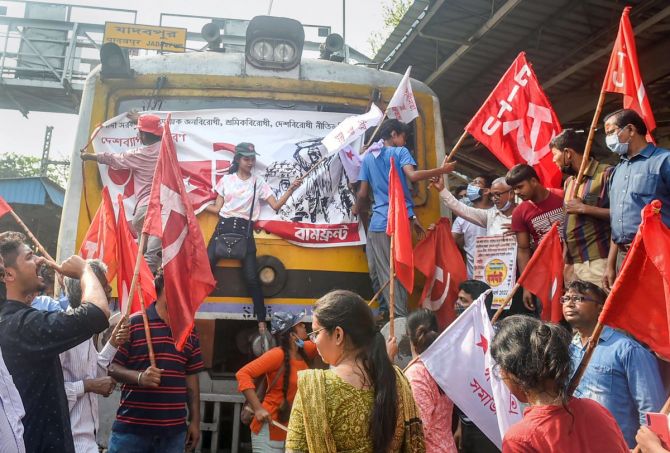
While essential services mostly remained unaffected, banking services in different parts of the country were partially impacted and there were reports of workers staging protests at several places across states.
Electricity and fuel supplies remained unaffected but unions claimed the agitation has had an impact in coal mining belts in Jharkhand, Chhattisgarh and Madhya Pradesh.
A joint forum of central trade unions has given a call for a nationwide strike on March 28 and 29 to protest against the government policies affecting workers, farmers, and people.
Their demands include the scrapping of the labour codes, no privatisation in any form, scrapping of the National Monetisation Pipeline, increased allocation of wages under MNREGA (Mahatma Gandhi Rural Employment Guarantee Act) and regularisation of contract workers.
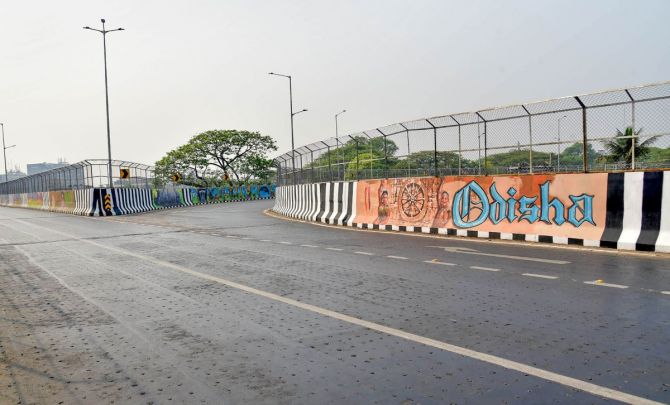
In West Bengal, normal life was hit with protesters blocking roads and stopping movement of trains at some stations.
State road transport buses as well as auto rickshaws and private buses were off the road in Kerala but essential services, including supply of milk, hospital and ambulance services were not affected.
Public transport services were hit in Haryana as employees of state roadways joined the two-day nationwide strike.
Thousands of workers of state-owned SAIL, RINL and NMDC also joined the nationwide strike, affecting production at steel plants and mines.
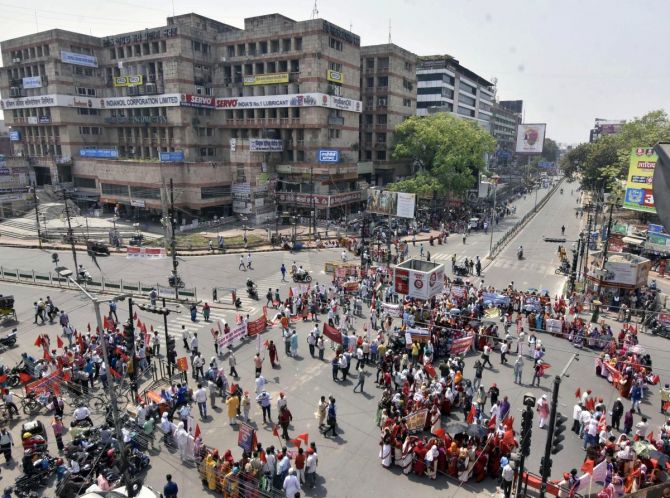
Banking services were partially impacted on Monday as a section of bank employees did not report for duty. However, there was hardly any impact on the functioning of new generation private sector banks.
There might be a delay in cheque clearances and government treasury operation might also be affected by the strike.
The impact of the strike is prominent in eastern India as many branches of public sector banks there are closed, All India Bank Employees' Association (AIBEA) General Secretary C H Venkatachalam said.
In the other regions, branches are open as officers are present but services are being impacted due to many employees participating in the strike, he said.
Bank unions are protesting against the government move to privatise two public sector banks as announced in Budget 2021-22. They are also demanding an increase in interest rate on deposits and reduction in service charges.
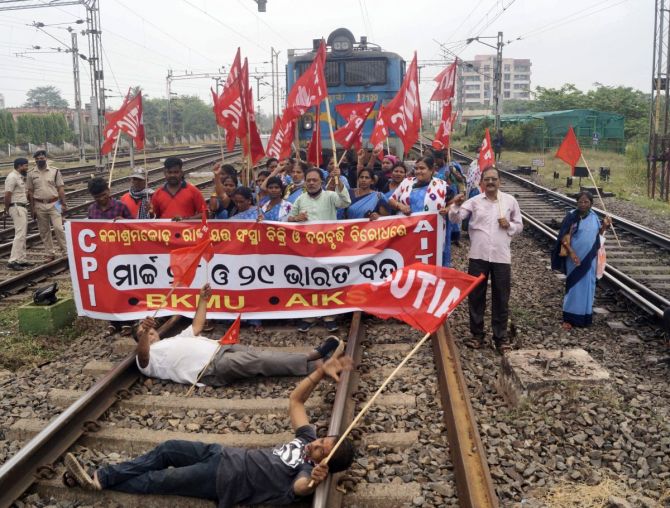
The central trade unions that are part of this joint forum are INTUC, AITUC, HMS, CITU, AIUTUC, TUCC, SEWA, AICCTU, LPF and UTUC.
"The two-day nationwide strike by the joint forum of central trade unions has begun this morning and has got good response," Amarjeet Kaur, General Secretary of All India Trade Union Congress (AITUC), told PTI.
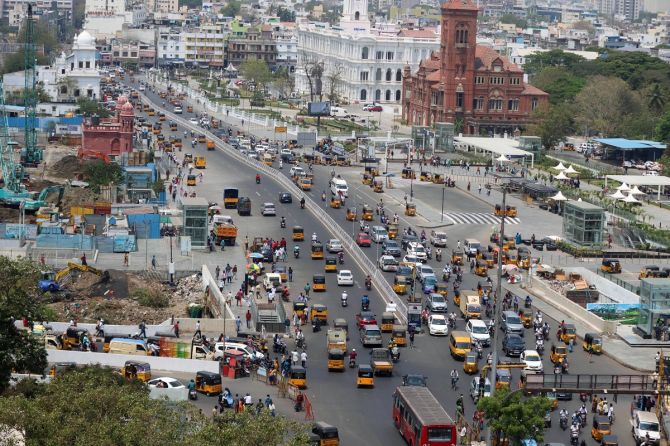
She said the entire coal belt (mining area) has been affected in Jharkhand, Chhattisgarh and Madhya Pradesh.
According to her, there is a good response for the strike call in industrial areas of Assam, Haryana, Delhi, West Bengal, Telangana, Kerala, Tamil Nadu, Karnataka, Bihar, Punjab, Rajasthan, Goa, Andhra Pradesh and Odisha.
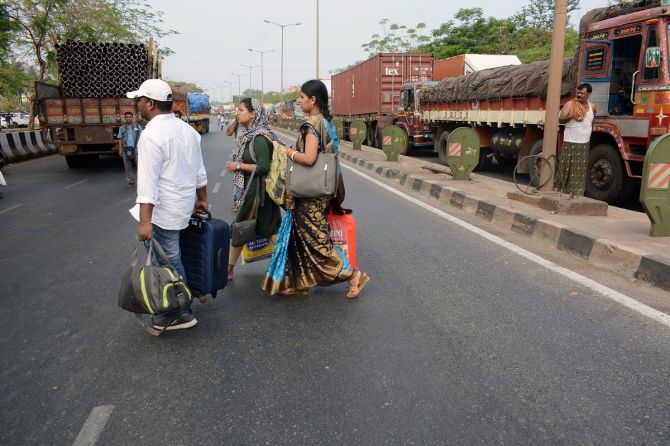
Amarjeet Kaur claimed that banks and insurance sectors have been affected all over India while steel and oil sectors were also seeing partial impact due to the strike.
As many as 10 central trade unions have joined hands to go on a two-day nationwide strike from Monday. About 20 crore workers are expected to join the strike.
The strike notices have been given by the unions in various sectors, including coal, steel, oil, telecom, postal, income tax, copper, banks, and insurance.











 © 2025
© 2025